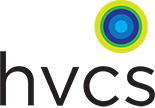This one-day training is designed to assist health and human services providers in promoting retention in care and treatment adherence with active substance users. Providers that are aware of effective strategies for working with active substance users can play a vital role in assisting clients with retention and treatment adherence. Topics to be covered during the training include: defining active substance use, including levels of use; strategies for talking with clients about the importance of maintaining healthcare; harm reduction strategies and tools for working with active substance users.
As a result of this training, participants will be able to:
•Increase their knowledge of issues related to active substance use and HIV/HCV retention in care and treatment adherence;
•Recall the definition of active substance use and recognize various forms of substance use and stages of use;
•Recognize strengths of substance users and identify ways to use those strengths to achieve retention in care and treatment adherence
•Recognize strategies employed by providers to work with active substance users;
•Describe strategies for supporting retention in care and treatment adherence during periods of chaotic use, relapse and transitions in and out of drug treatment.
Prerequisite: Although there is no prerequisite for this training, it is strongly recommended that participants have previous training in HIV/AIDS.
Audience: All health and human service providers.

